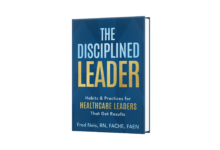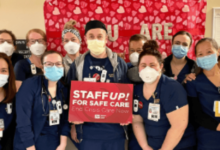Maternity understaffing flagged in birth trauma report

Poor maternity care in the NHS is “all-too-frequently tolerated as normal”, an inquiry into birth trauma has found.
The inquiry has been led by the All-Party Parliamentary Group on Birth Trauma and has brought to light “harrowing” experiences of many parents.
“In many of these cases, the trauma was caused by mistakes and failures made before and during labour”
Report
Midwives also contributed evidence and described “under-staffing, a poor physical environment and a harmful working culture”.
The inquiry’s report – Listen to Mums: Ending the Postcode Lottery on Perinatal Care – determined that changes were needed to establish a “base standard in maternity services across the United Kingdom”.
As part of this, the report said more midwives, obstetricians and anaesthetists needed to be recruited and retained in order to ensure safe staffing levels in maternity services.
The inquiry, chaired by MP Theo Clarke, has been underway since January and has received more than 1,300 evidence submissions from people who have experienced traumatic birth, as well as nearly 100 submissions from maternity professionals.
It also held seven evidence sessions in Westminster, in which it heard testimony from both parents and experts, including maternity professionals and academics.
The stories told by parents included accounts of stillbirth, children left disabled as a result of complications at birth and mothers who had endured “life-changing injuries” from severe tearing.
“In many of these cases, the trauma was caused by mistakes and failures made before and during labour,” the report warned.
“Frequently, these errors were covered up by hospitals who frustrated parents’ efforts to find answers.
“There were also many stories of care that lacked compassion, including women not being listened to when they felt something was wrong, being mocked or shouted at and being denied basic needs such as pain relief.”
The report said poor quality postnatal care was an “almost-universal” experience among parents who contributed to the inquiry.
This included lacking support immediately after the birth in hospital, as well as in the weeks after birth when the physical and mental health of parents was often overlooked.
Meanwhile, the maternity professionals who took part in the inquiry outlined a maternity system “in which overwork and understaffing was endemic”, with some referring to a culture of bullying.
One former midwife, who left the NHS in 2022 after 15 years as a result of her poor experiences, said the unit where she worked was hierarchical.
She said there was one consultant obstetrician who “behaved aggressively towards staff and treated the women in his care inappropriately”.
In one incident, the doctor “dragged another outspoken midwife by her hair along an antenatal clinic corridor”, the former midwife told the inquiry.
The report stated: “The picture to emerge was of a maternity system where poor care is all-too-frequently tolerated as normal, and women are treated as an inconvenience.
“We have made a set of recommendations that aim to address these problems and work towards a maternity system that is woman-centred and where poor care is the exception rather than the rule.”
“Our own members tell us they are struggling to give women the time and quality of care they need and deserve”
Gill Walton
The chief recommendation in the report was for the UK Government to publish a national maternity improvement strategy, led by a new maternity commissioner who will report to the prime minister.
As well as more midwives, obstetricians and anaesthetists, the report said new training for maternity staff on providing “trauma-informed care” and reducing obstetric and anal sphincter injury (OASI) in patients was needed.
The report called for “better continuity of care” for families, digital health records for all mothers and “universal access” to specialist maternal mental health services.
There were also recommendations aimed at improving support for fathers and partners, and to tackling health inequalities negatively impacting Black and Asian women.
Commenting on the new report, Gill Walton, chief executive of the Royal College of Midwives, who gave evidence to the inquiry, said: “The women who shared their experiences with the inquiry must be commended for doing so and we owe it to them to learn and improve from the failings that happened in their care.”
Reiterating the workforce factors highlighted in the report, Ms Walton said staffing shortages “drastically impact the safety and quality of care that midwives can and so want to deliver”.
“Our own members tell us they are struggling to give women the time and quality of care they need and deserve,” said Ms Walton.
“Also, with the rise in more complex pregnancies, having the right skill mix of staff on shift is key.”
Health and social care secretary Victoria Atkins expressed her gratitude to the women who shared their experiences for the report and said she backed the call for a new national maternity improvement strategy.
She added: “I am determined to improve the quality and consistency of care for women throughout pregnancy, birth and the critical months that follow, and I fully support work to develop a comprehensive national strategy to improve our maternity services.”
She highlighted areas where progress had already been made, including new “standalone” GP check-ups for mothers six-eight weeks after giving birth which are focused on the mother’s health and wellbeing and not just that of the baby.
In addition, Ms Atkins said the government was investing £186m a year more than in 2021 to improve maternity and neonatal care.







